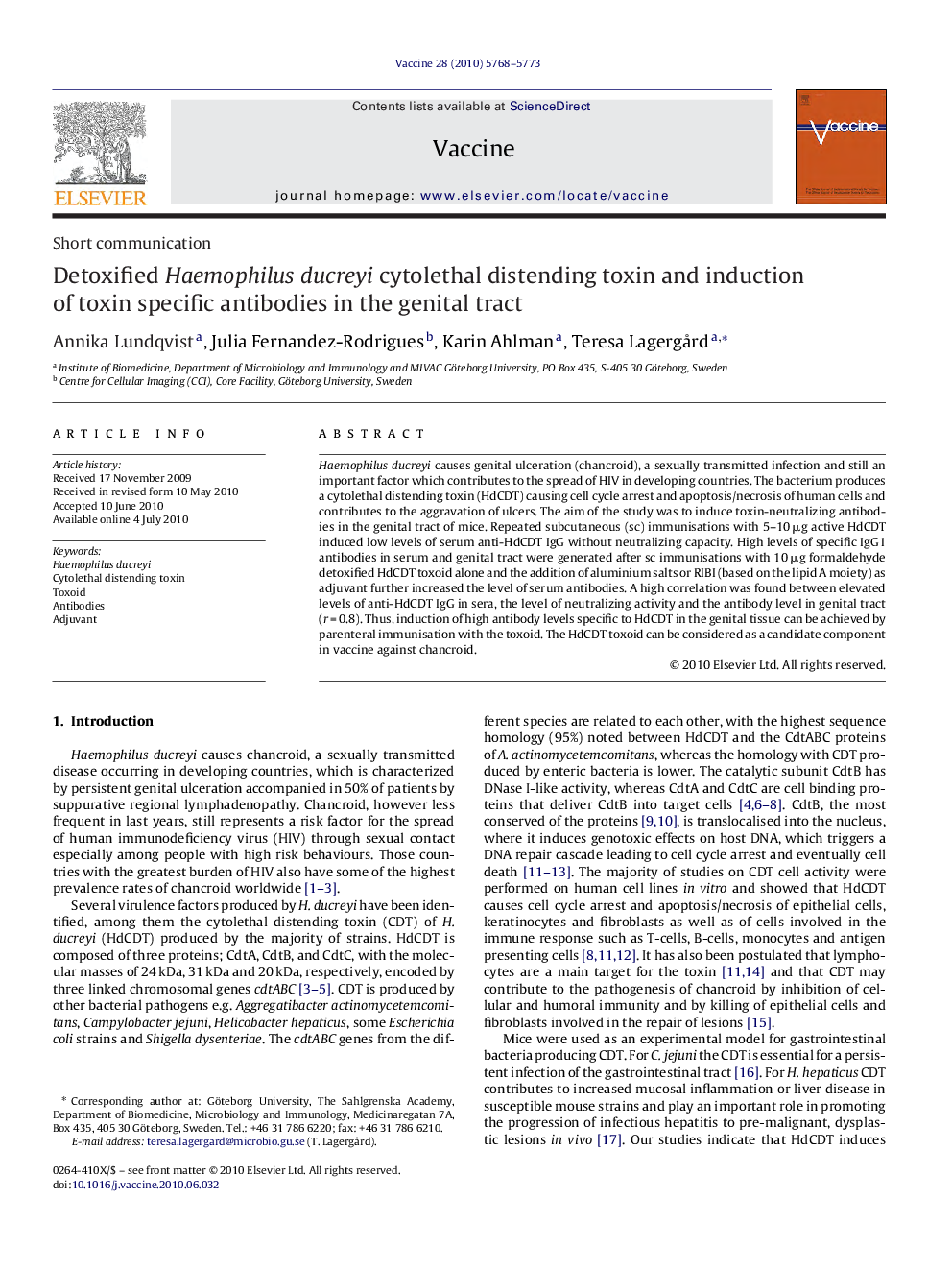| کد مقاله | کد نشریه | سال انتشار | مقاله انگلیسی | نسخه تمام متن |
|---|---|---|---|---|
| 2405371 | 1103032 | 2010 | 6 صفحه PDF | دانلود رایگان |

Haemophilus ducreyi causes genital ulceration (chancroid), a sexually transmitted infection and still an important factor which contributes to the spread of HIV in developing countries. The bacterium produces a cytolethal distending toxin (HdCDT) causing cell cycle arrest and apoptosis/necrosis of human cells and contributes to the aggravation of ulcers. The aim of the study was to induce toxin-neutralizing antibodies in the genital tract of mice. Repeated subcutaneous (sc) immunisations with 5–10 μg active HdCDT induced low levels of serum anti-HdCDT IgG without neutralizing capacity. High levels of specific IgG1 antibodies in serum and genital tract were generated after sc immunisations with 10 μg formaldehyde detoxified HdCDT toxoid alone and the addition of aluminium salts or RIBI (based on the lipid A moiety) as adjuvant further increased the level of serum antibodies. A high correlation was found between elevated levels of anti-HdCDT IgG in sera, the level of neutralizing activity and the antibody level in genital tract (r = 0.8). Thus, induction of high antibody levels specific to HdCDT in the genital tissue can be achieved by parenteral immunisation with the toxoid. The HdCDT toxoid can be considered as a candidate component in vaccine against chancroid.
Journal: Vaccine - Volume 28, Issue 36, 16 August 2010, Pages 5768–5773